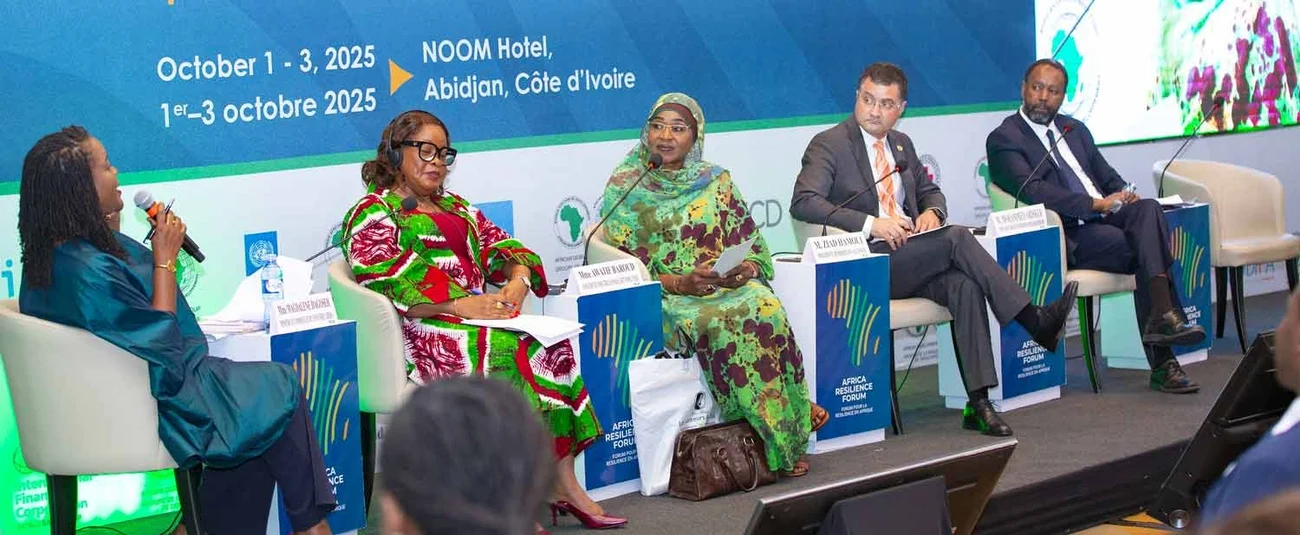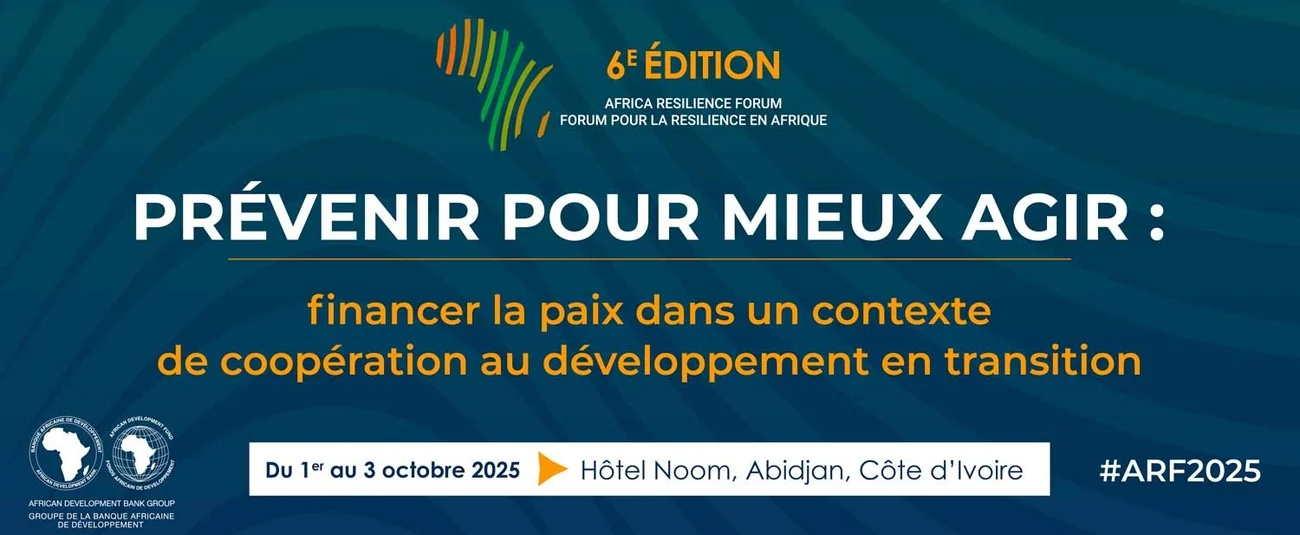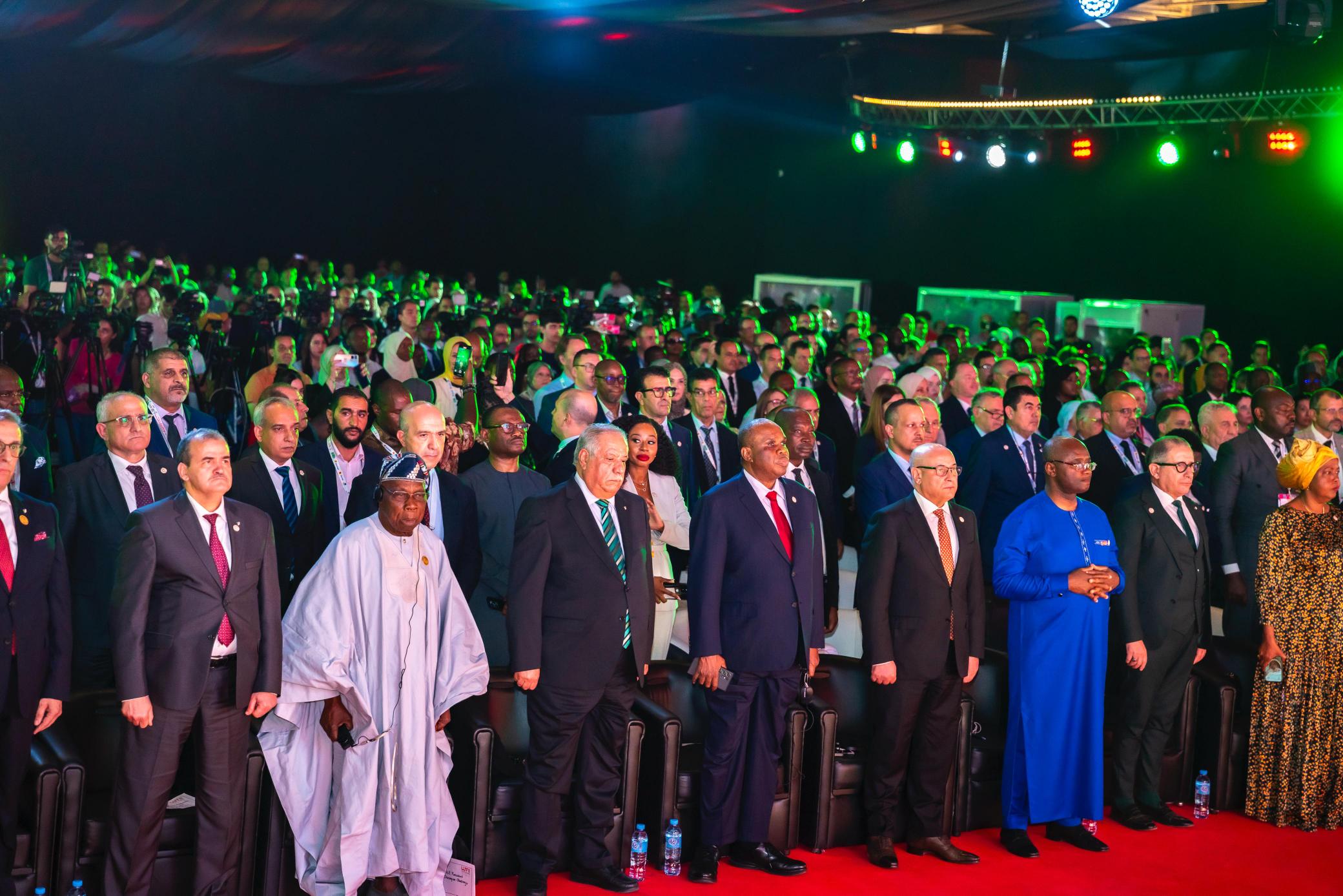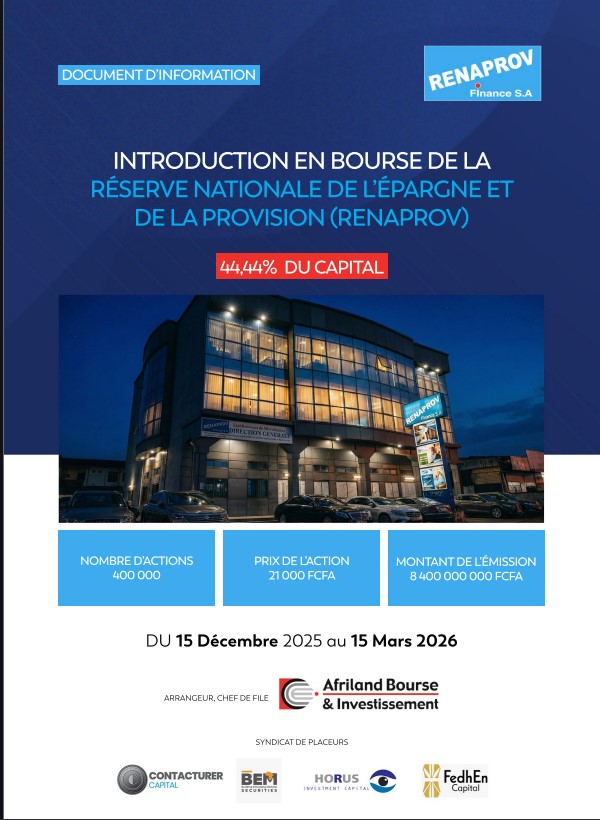By Etienne Mainimo Mengnjo
Development leaders have called for high-quality border infrastructure to facilitate the free movement of goods and people during the Africa Resilience Forum 2025, which took place from Oct. 1-3.

The call came during a panel session, “Regional Integration and Trade as Pathways to Peace,” on the forum’s opening day. Panelists argued that political will is essential to establish quality border infrastructure, including single, digitized checkpoints between neighboring countries.
“The political will to build quality infrastructure at borders, including the construction of a single digitized checkpoint between two neighboring countries, should facilitate the free movement of people and goods and help streamline cross-border trade in Africa,” the panelists concluded.
“The ideal is to have a single border post between countries — if we were to have strong infrastructure like that, it would help facilitate trade,” said Mohammed Abdiker, chief of staff for the International Organization for Migration (IOM).
Abdiker stressed that political commitment is a prerequisite for any progress in this area. “We must all work together, advocating to our governments on the importance of the movement of goods and people for a more integrated management of our borders,” he urged. “Not only for customs duties, but also for science and technology.”
The IOM previously worked on a successful single border post project between the Democratic Republic of Congo and Rwanda. Abdiker noted that a similar project is now underway with the African Development Bank (AfDB) between the Central African Republic and Cameroon, which he said is already “improving cross-border trade.”
Liberia’s Minister of Commerce and Industry, Magdalene Dagoseh, emphasized the need for technology. “As well as having a single border post at each of our borders, we will need to digitize border services,” Dagoseh said.

She added that digitalization offers a solution for controlling both people and commercial goods and helps combat corruption. “By digitizing the various border points, we can fight corruption — we know how many people have left or entered, and this prevents other problems.”
These calls support the goals of the African Continental Free Trade Area (AfCFTA), which the African Union launched in January 2021 to increase intra-African trade and stimulate sustainable development. By January 2025, 49 countries had ratified the agreement, creating a potential market of 1.3 billion people.
The AfDB actively supports this initiative by financing projects to establish single border posts, or “trade facilitation centers,” designed to simplify customs clearance. The bank’s projects include a single control post between Tanzania and Kenya and a juxtaposed checkpoint between Benin and Togo, financed by the African Development Fund.
Ziad Hamoui, president of Borderless Alliance, a private sector initiative, called for civil society involvement in policy design to address the challenges of moving people and goods.
“There is formal trade, but also informal trade, not to mention illicit trade and smuggling,” Hamoui said. He argued that officials must understand what happens at borders because “the volume of trade in the informal sector is higher than in the formal sector.”
The Africa Resilience Forum, organized every two years by the AfDB Group, brings together policymakers and practitioners to explore strategies for prevention and peace-building investments.


